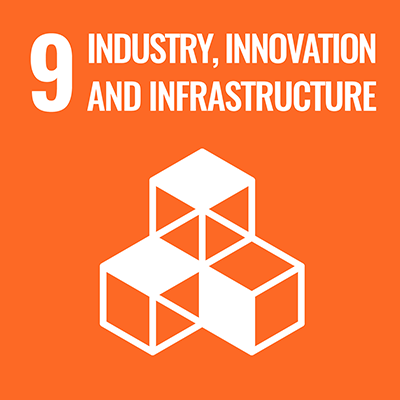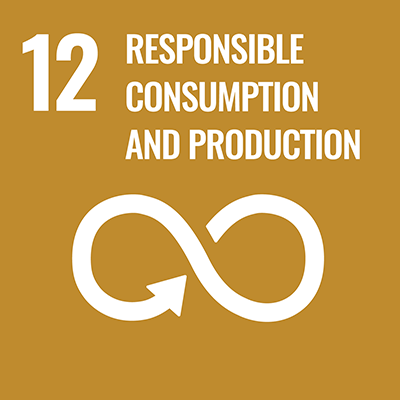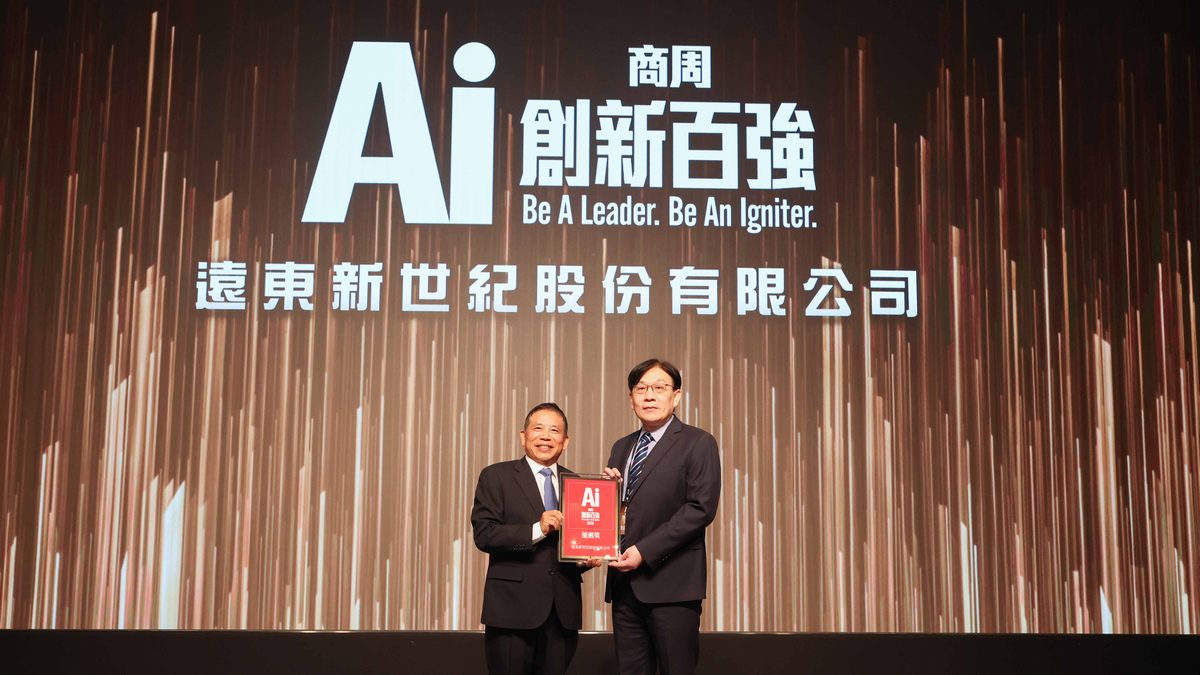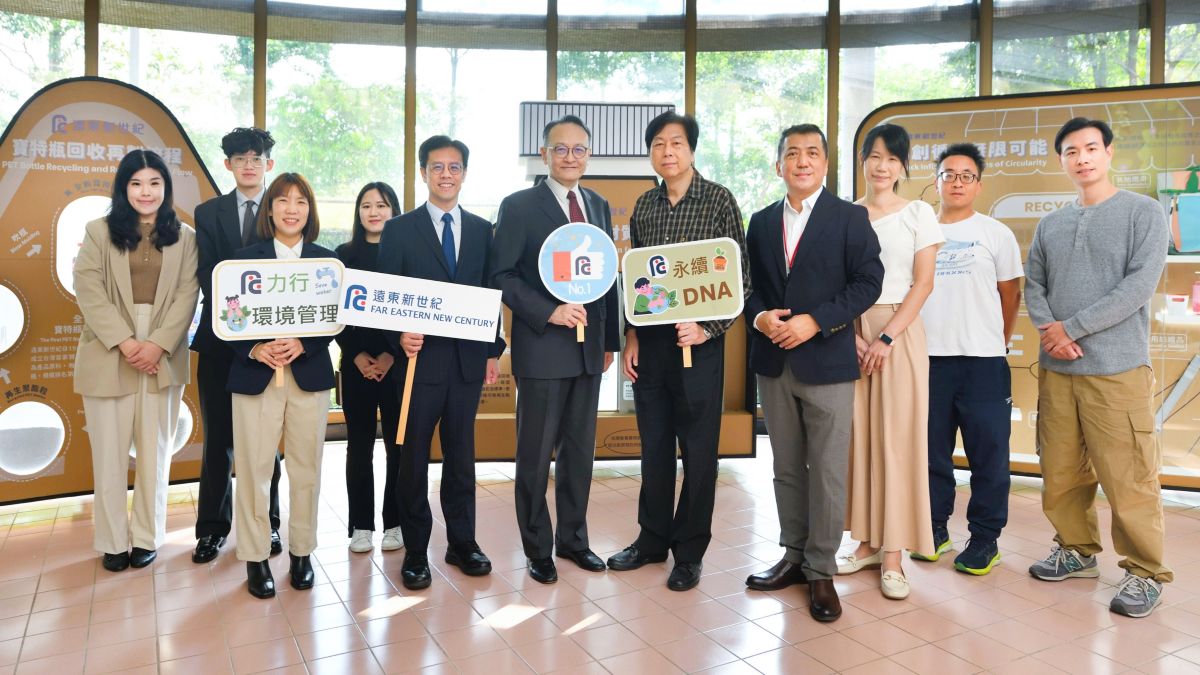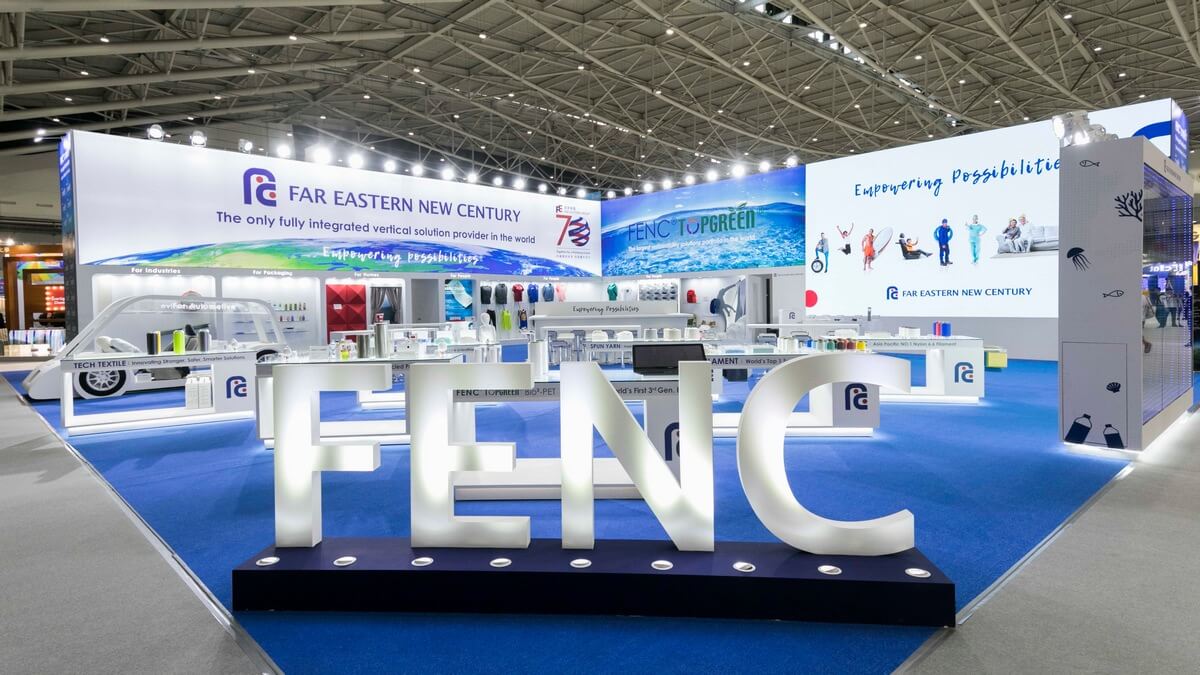Taiwanese textile giant behind FIFA jerseys made from recycled marine debris
Far Eastern New Century works with Adidas to supply uniforms for Germany, Japan, Spain, Argentina, Mexico
Taipei (Taiwan News) — As the International Federation of Football Association (FIFA) World Cup kicks off in Qatar, Taiwanese textile company Far Eastern New Century (FENC) shared how it developed the light and tear-resistant fabric used for several teams’ uniforms from marine debris.
In an interview with Business Today, the company’s Polyester Business Senior Vice President Eric Huang (黃全億) said eco-friendliness has become a “basic requirement” for materials used in the world’s largest sports brands’ products. He added that, having served as a major supplier of FIFA World Cup uniforms for the past several tournaments, FENC uses material recycled from marine debris, which the company has developed over seven years.
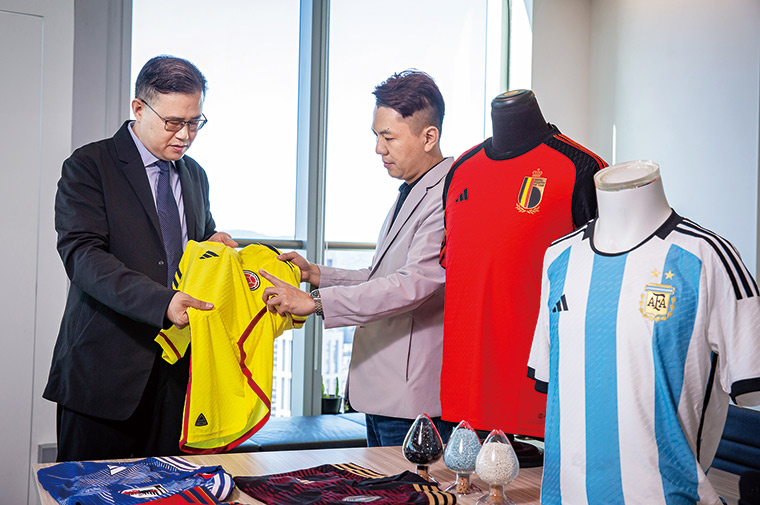
FENC's Polyester Business Senior Vice President Eric Huang (left) examines a soccer jersey produced by his company
For the 2022 World Cup, FENC worked with its long-term business partner, Adidas, and produced uniforms worn by nine national teams including that of Germany, Japan, Spain, Argentina, and Mexico. This year’s jerseys were upgraded with tear-resistant fabric, making them not only light and eco-friendly, but also durable.
Sports equipment manufacturers are constantly trying to make jerseys lighter so players can move more freely, Business Today reported. However, when a jersey is less than 200 grams in weight, the thin fabric becomes fragile, especially after 90 minutes of players’ intense running and sweating.
Developing better tear-resistant fabric has not been easy for FENC. It took several failed tests and several adjustments to find the right weaving pattern that prevents tears most efficiently.
“After three years of testing and development, we finally confirmed the specifications for all fabrics,” Huang said. FENC has already shipped its World Cup uniform orders to retailers around the world.
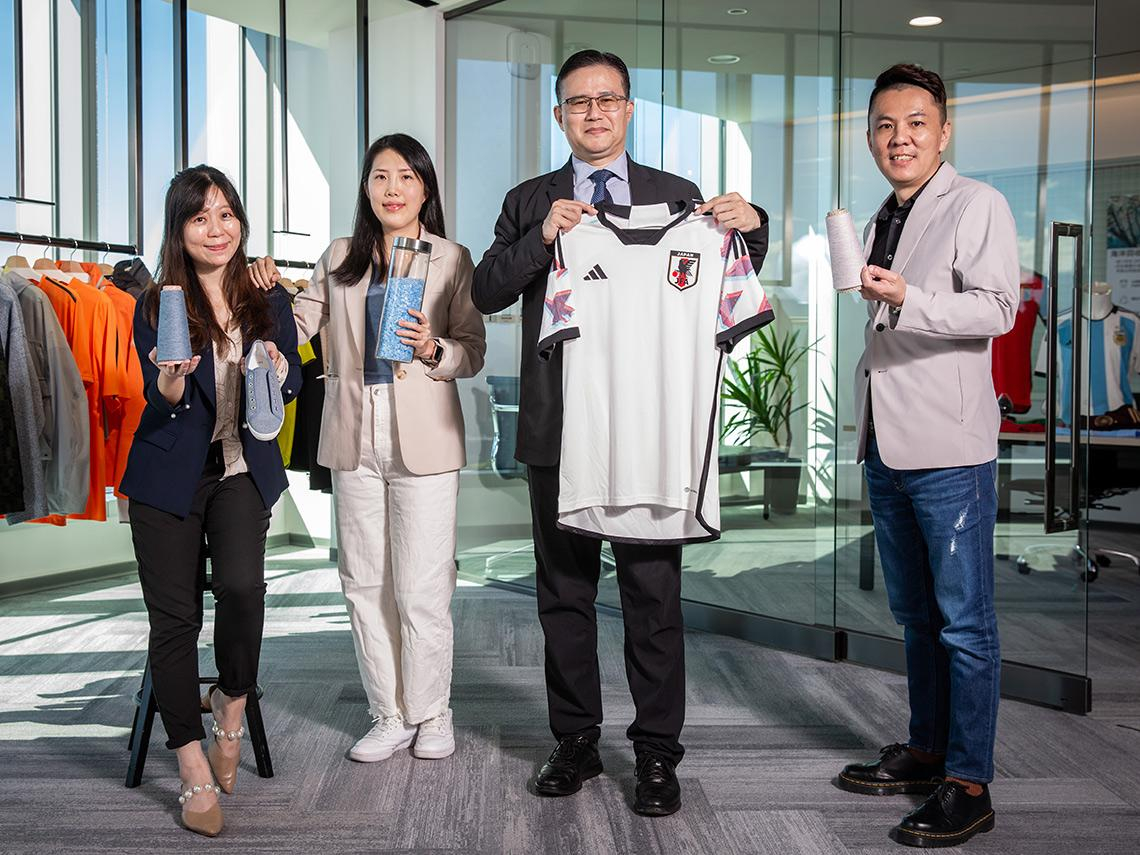
Staff members of FENC present their products made out of recycled marine debris.
In addition to recycled marine debris, FENC also develops fabric from recycled plastic bottles and even exhaust gas. To create polyester from exhaust gas, FENC collaborates with American biotech company LanzaTech, capturing steel factories’ gas emissions and transforming it into the material before being spun into fiber.
“Since we announced our partnership with Lululemon last July, we have been bombarded with inquiries about recycled exhaust gas fabrics,” Huang said. “Though it is hard for the general public to imagine, clothes made from recycled exhaust gas feels like and has the exact same quality as those made from traditional petrochemical materials.”
Aside from Lululemon, FENC also began working with Zara this year, while European sports brands have also offered to make deals. Though Huang admitted that the cost to produce recycled exhaust gas products is still high, he said brands are still interested in trying the technology out thanks to the global trend in carbon reduction.
Business and Company
News Type
UN SDG
Share
Download
Source
By Stephanie Chiang, Taiwan News, Staff Writer



